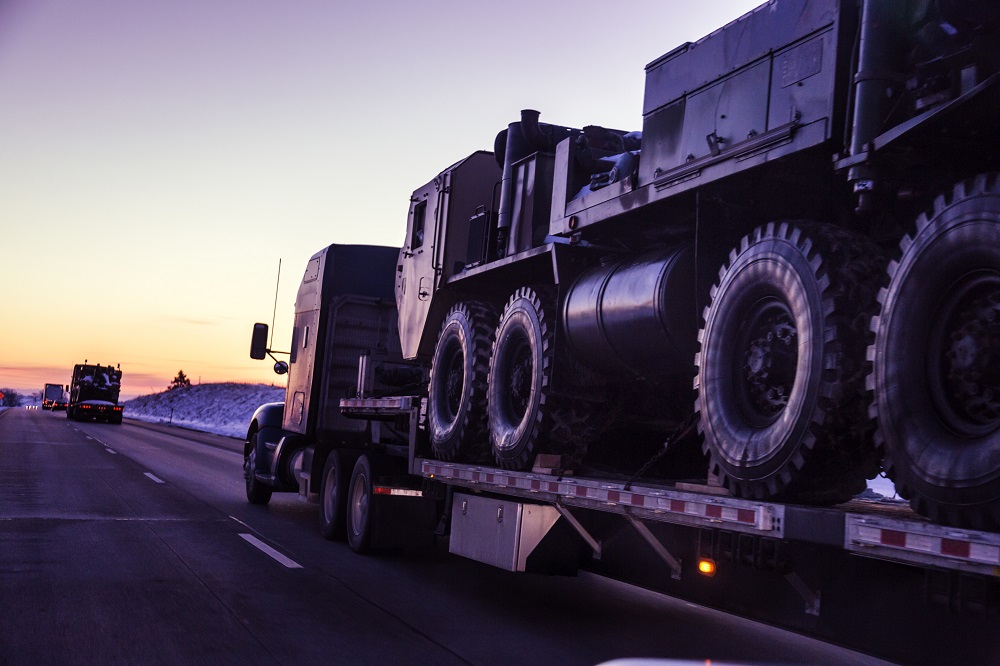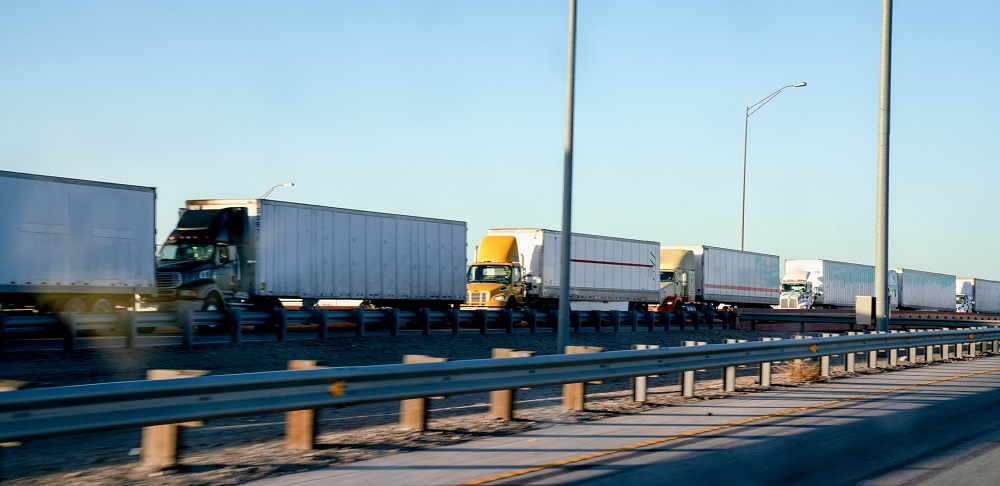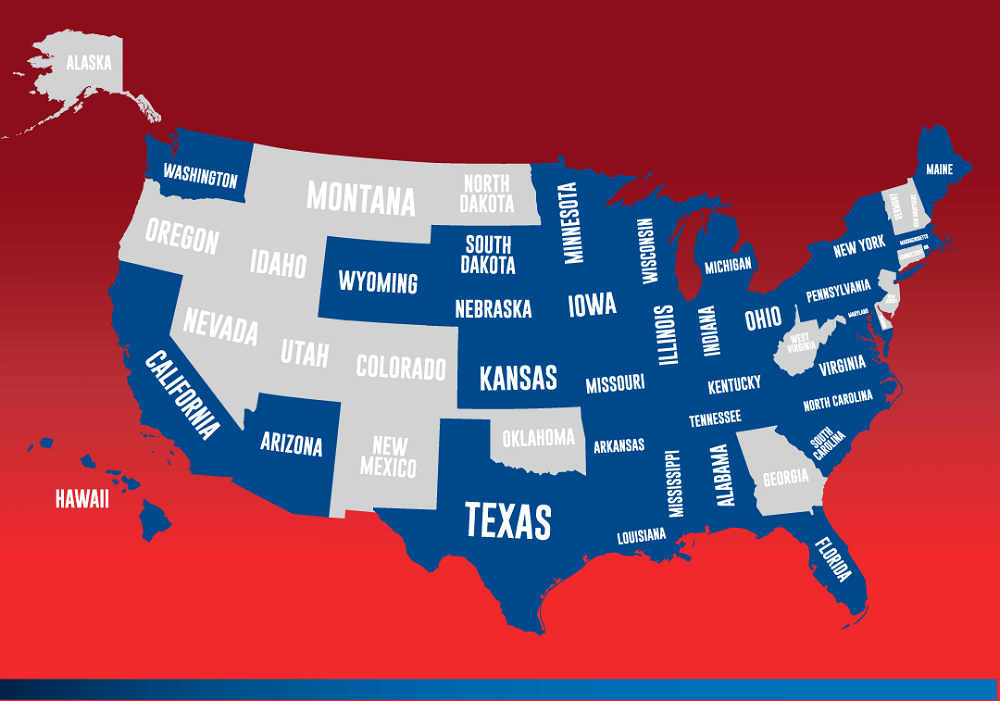The most unproductive in modern history. That’s the ignominious label given to the 118th Congress by Axios. In the past year, slightly more than two dozen bills have passed both the House and Senate and been signed into law. This meager number contrasts sharply with the 117th Congress, which enacted 85 bills into law in the first year.

Despite this environment of increasing partisan gridlock that has been so hostile to moving legislation forward, ATA continues to secure wins for our members and industry—including two major provisions in the National Defense Authorization Act this month that will improve access to military bases and strengthen cross-border trade. These are serious attempts to fix problems at a time when these types of commonsense solutions in Congress are increasingly rare to find.
These victories did not occur in a vacuum. This success can be directly traced to ATA’s tried and true shoe leather lobbying.
A Grassroots Tale: Improving Base Access

Getting through the gates at U.S. military bases has long proven extremely difficult for truck drivers and motor carriers, such as those that relocate servicemembers and their families, deliver personal packages, or transport arms and ammunition. Stakeholders have no interest in bypassing security protocols, but arbitrary or unknown base access requirements that vary between installations often needlessly delay truck drivers for hours—or longer.
In a coordinated effort to finally resolve this prolonged challenge, members of ATA’s Moving and Storage Conference and Government Freight Conference descended on Capitol Hill for a Call on Washington on April 18. In meeting after meeting with their Members of Congress, they argued passionately and persuasively that truck drivers, motor carriers, and movers are Defense Department partners. They explained how their operations are vetted by the federal government, and many have security clearances or similar credentials, but these credentials did not guarantee smooth entry to bases.
One of those members was Jim Utley, a retired colonel who is now an executive for a HAZMAT carrier that regularly contracts with the DoD. During his military service, he had a role in shaping base access policy, and he was able to effectively leverage this previous experience along with his current expertise when communicating with policymakers. Movers Bert Collins of Coleman Worldwide Moving and Caleb McCartney of Cornerstone Moving & Storage spoke about how differences in access policies directly impacted military families and why fixing this problem has been a top concern for movers.
The group’s Call on Washington had an auspicious start. Their first meeting was with Mark Alford (R-Missouri), who quickly pledged his support. Later in the day, the ATA team met with staff from the House Armed Services Committee, who proposed the language that Rep. Alford and his colleague, John Garamendi (D-California), ultimately attached to the NDAA. The ATA-led group also made their way to the Senate side, where they presented their case to staff from the Senate Armed Services Committee, laying the foundation for similar text to be included in the Upper Chamber’s version of the bill.
As the NDAA was making its way through Congress, the Moving and Storage Conference held more than 60 meetings during their Call on Washington, reinforcing arguments that had been made in the spring and shoring up support for the provision that ATA members secured earlier in the year. With most military relocations occurring between May and September, delays at one base can easily impact the pick-up and delivery of household goods for multiple military families.

The focused, relentless advocacy by ATA members paid off this month when Congress overwhelming passed the NDAA with the ATA’s base access provision intact. This will remove an enormous burden for motor carriers and alleviate the hassle for truck drivers delivering or picking up loads. By creating a consistent standard, the NDAA will improve the base access process while maintaining robust security. Specifically, the law will:
- Require DoD to update its fitness standard in the base access manual;
- Set certain deadlines for DoD to meet; and
- Require DoD to brief Congress along the way.
Trading Partisanship for Progress

ATA wasn’t satisfied with just one major victory in the NDAA, however. We clinched two. Our second win will improve the efficiency of cross-border freight.
Currently, delays in building new bridges and expanding existing ones create bottlenecks that impede economic growth. Interminable permitting delays are a common culprit blocking the expansion of these crossings.
Given the intractable nature of trade and border policy, many other associations would have shied away from this debate. But ATA knew that this was a debate worth having; this issue is too important to ignore.
In 2022, trade between the U.S. and Mexico totaled nearly $780 billion, and this figure is expected to increase as companies move their businesses and supply chains back to North America. Trade between the two countries supports millions of American jobs, and 83% of the value of goods crossing the southern border is transported by truck. Accelerating improvements for these vital trade corridors is essential to accommodating the growth in trade along the southern border, creating American jobs and reducing dependence on China.
ATA and the Texas Trucking Association spearheaded a coalition to give southern border bridges the priority they deserve. As a result of their advocacy, the NDAA included a provision that will expedite permitting to build or expand cross-border bridges to Mexico. It accomplishes this without compromising the integrity of environmental reviews.
Specifically, this section of the NDAA would set up a 60-day timeline for the State Department to make a recommendation to the president on an application and give the president an additional 60 days to then approve or deny a permit. A permit could be conditioned on a project receiving a National Environmental Policy Act permit. Setting a firm deadline and starting the clock will ensure that international bridge projects—and cross-border freight—can move forward.
COW Proves Its Mettle
This incredible progress would not have been possible without ATA members taking the time to educate Members of Congress on the challenges facing their industry and to push for policy solutions. While other trade associations organize fly-ins once a year, the ATA Federation has a permanent presence in the halls of Congress year-round, with state associations visiting weekly on a rolling basis.
These in-person discussions have sparked momentum for numerous policies important to our industry, and the proof can be seen in the impressive number of meetings Call on Washington has facilitated since January and the new cosponsors that have been added to bills we have endorsed.


It is undeniable that these in-person discussions have sparked momentum for numerous policies important to our industry.
When Congress returns in 2024, ATA will ensure that additional trucking priorities such as repealing the federal excise tax and strengthening workforce development remain at the top of members’ New Year’s resolutions. And we will continue to find ways to win regardless of partisan headwinds.